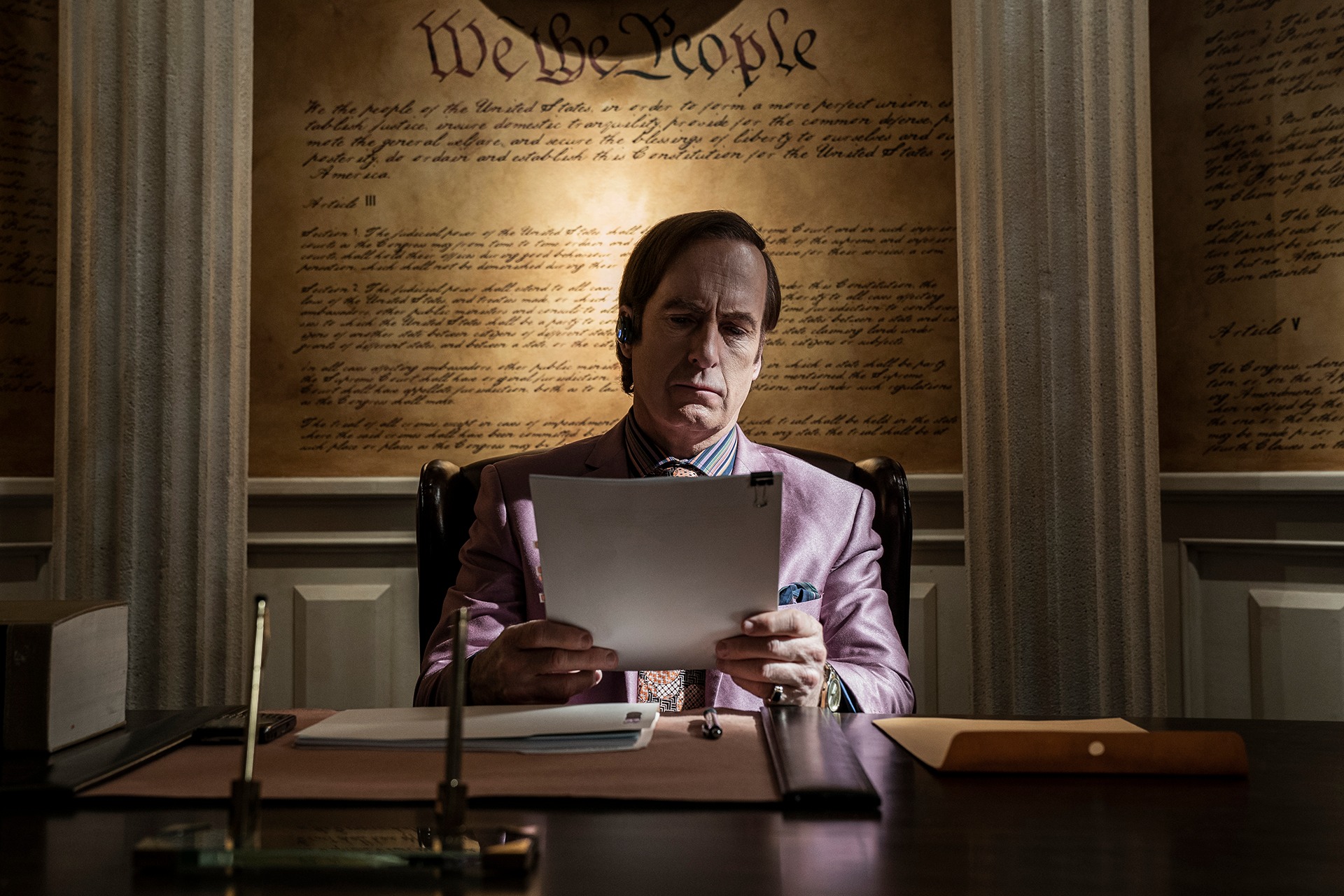
Film Editor James Evenden is full of praise for the final season of Better Call Saul, declaring it a perfect piece of television
To put it simply, I do not think I have enough words to describe to you how masterful Better Call Saul Season Six is, continuing the show’s nuanced writing, stunning performances and beautiful cinematography. However, this final season manages to do the impossible in not only standing above the rest, but it actually takes itself a step-above Breaking Bad with its expert storytelling and deft character work. I consider Breaking Bad a perfect piece of television, and I am so happy to say that with this final season of Better Call Saul, it has a companion piece that will go down in television history as how to do a prequel right.
This final season acts as both the culmination of Saul Goodman’s (Bob Odenkirk) story and the greater story of the Breaking Bad universe. We pick up right after the end of Season Five, with Lalo Salamanca (Tony Dalton) having escaped the raid on his house, and Saul and Kim Wexler (Rhea Seehorn) plotting against Howard Hamlin (Patrick Fabian).
The storytelling has always been a strength of Better Call Saul, and Season Six is no different. The story unfolds at the same slow pace, but what feels different is the undertone of mournfulness that permeates this season, especially towards the latter half. The payoffs still hit with a punch and still manage to surprise after six seasons, but as the series comes to a close, an inescapable sense of dread in the writing really makes this season feel important and consequential.
“As the series comes to a close, an inescapable sense of dread in the writing
This is helped by a cast who could play these characters in their sleep. The performances are outstanding as always – Odenkirk is phenomenal, playing Goodman as a slightly more tortured soul than seen previously, as he wrestles with his impact on those around him. This is also seen in Seehorn’s performance as Kim, the standout for me this season. Kim has never been so entangled with Saul, and her slow transformation to crime along with him is shown with a comparative quietness compared to Odenkirk. A special mention also should go to Nacho (Michael Mando), who is often overlooked but is brilliant here. Nacho is angry in Season Six, and Mando shows this rage with impressive restraint. There is not a weak player in this cast.
That is the perfect word for Better Call Saul Season Six: restraint. The cinematography carries over its unique sense of focus in restraint. Focus lands on the innocuous. The camera stays on something seemingly meaningless for too long, refusing to stop until the ambiguity of the shot settles into the viewer. Better Call Saul Season Six does not go for the obvious in what it chooses to show. To the end, this season’s cinematography is haunting in its beauty. Notably, Season Six improves on its use of light, mainly in the black and white scenes with Saul’s new identity, Gene. These scenes feel particularly evocative, and the use of light is a big reason for this.
“That is the perfect word for Better Call Saul Season Six: restraint
From the beginning, Better Call Saul has been acting as a puzzle, filling in the blanks and slowly taking us closer to the Breaking Bad world. Season Six has the job of completing this puzzle, and it does this very well. It not only re-contextualises Breaking Bad, but actually adds different layers to the original show, and improves it. It makes it feel more like one cohesive universe, rather than two separate entities. This is very impressive, and a flawless use of the prequel format.
Better Call Saul, in my opinion, is another perfect piece of television. Season Six is no exception: it wraps up Saul Goodman’s story with a bittersweet outing that I believe more than satisfies. The ending fits in with the show’s tone. Season Six refuses to make this final season overly dramatic, instead ending with the deliberate pace that it began with – one that never drags. I struggle to think of characters and a story that feels more alive to me on television, and for a show where not much happens, that is the biggest compliment I can pay.
Rating: 5/5
Want more TV reviews? Check out these:
Comments